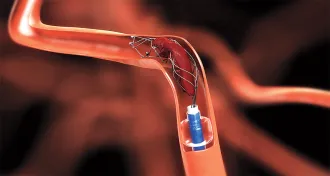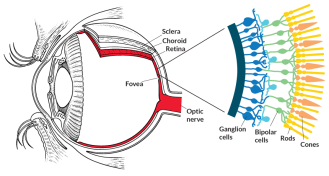Humans
Sign up for our newsletter
We summarize the week's scientific breakthroughs every Thursday.
-
 Genetics
GeneticsMutations that drive cancer lurk in healthy skin
Healthy tissue carries mutations that drive cancer, samples of normal skin cells show.
-
 Archaeology
ArchaeologyEarliest known stone tools unearthed in Kenya
East African discoveries suggest stone-tool making started at least 3.3 million years ago.
By Bruce Bower -
 Health & Medicine
Health & MedicinePlaytime at the pool may boost youngsters’ bodies and brains
Learning to swim early in life may boost kids’ learning in language and math.
-
 Health & Medicine
Health & MedicineSnagging blood clots upgrades stroke care
A new device threaded up to the brain via catheter can unblock vessels in cerebral arteries, studies show.
By Nathan Seppa -
 Health & Medicine
Health & MedicineBroken bones heal with young blood, how remains a mystery
Blood from young mice rejuvenates bones of elderly mice, but how it works remains a mystery.
By Meghan Rosen -
 Animals
AnimalsPandas’ gut bacteria resemble carnivores’
Unlike other vegetarians, the bamboo eaters lack plant-digesting microbes.
By Meghan Rosen -
 Environment
EnvironmentE-cigarette flavorings may harm lungs
Certain e-cigarette flavors, such as banana pudding, may damage lung tissue
By Beth Mole -
 Life
LifeTypical American diet can damage immune system
The typical American diet sends our good and bad gut microbes out of balance and can lead to inflammation and a host of problems.
By Laura Beil -
 Health & Medicine
Health & MedicineA firm grip may predict risk of death better than blood pressure
The strength of people’s grip could predict how likely they are to die if they develop cardiovascular or other diseases.
-
 Psychology
PsychologyQuantity counts for baboons
Counting-like logic helps baboons track and compare accumulating sets of peanuts.
By Bruce Bower -
 Genetics
GeneticsHow to rewire the eye
The cutting-edge technology called optogenetics may offer a workaround to partially restore vision even after the retina’s light-sensing rods and cones die.
-
 Animals
AnimalsEarly research asked whether cats dream
Early research asked whether cats dream; researchers still don’t know definitively.